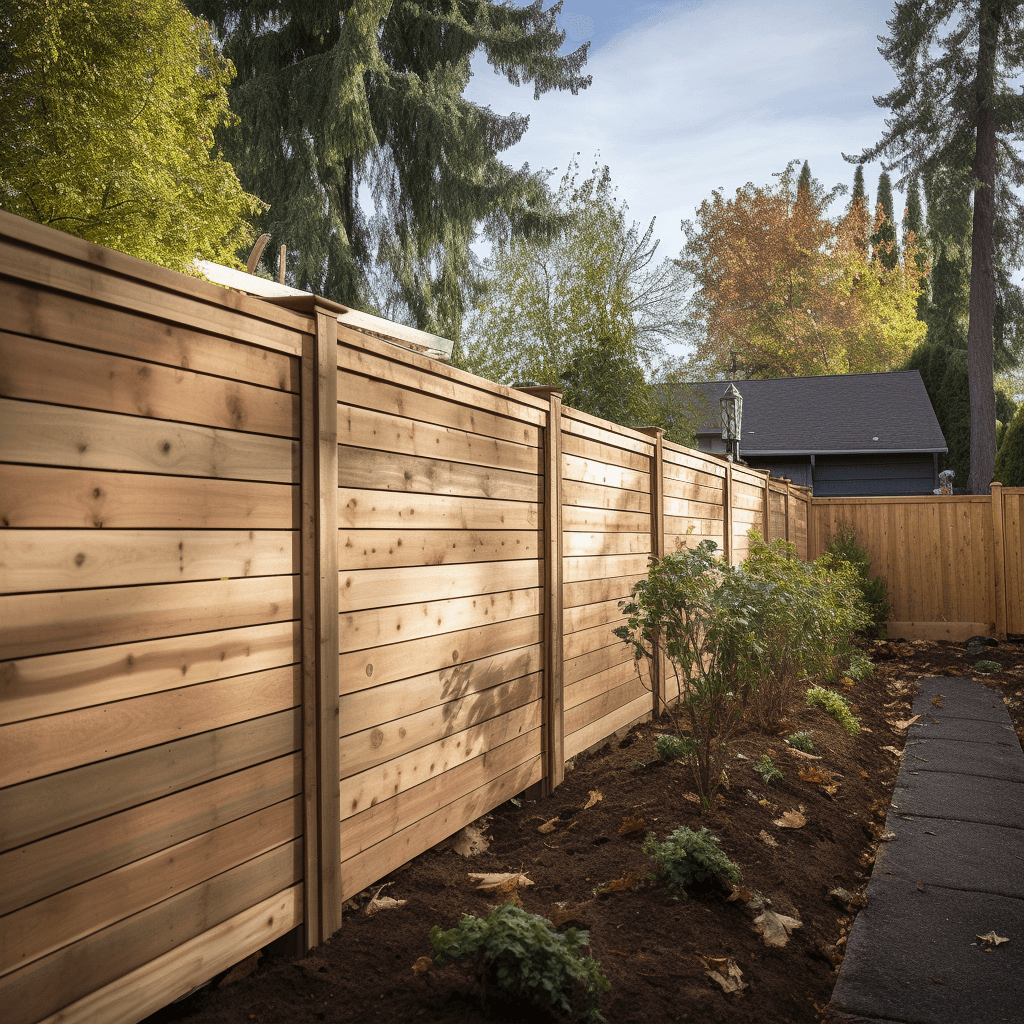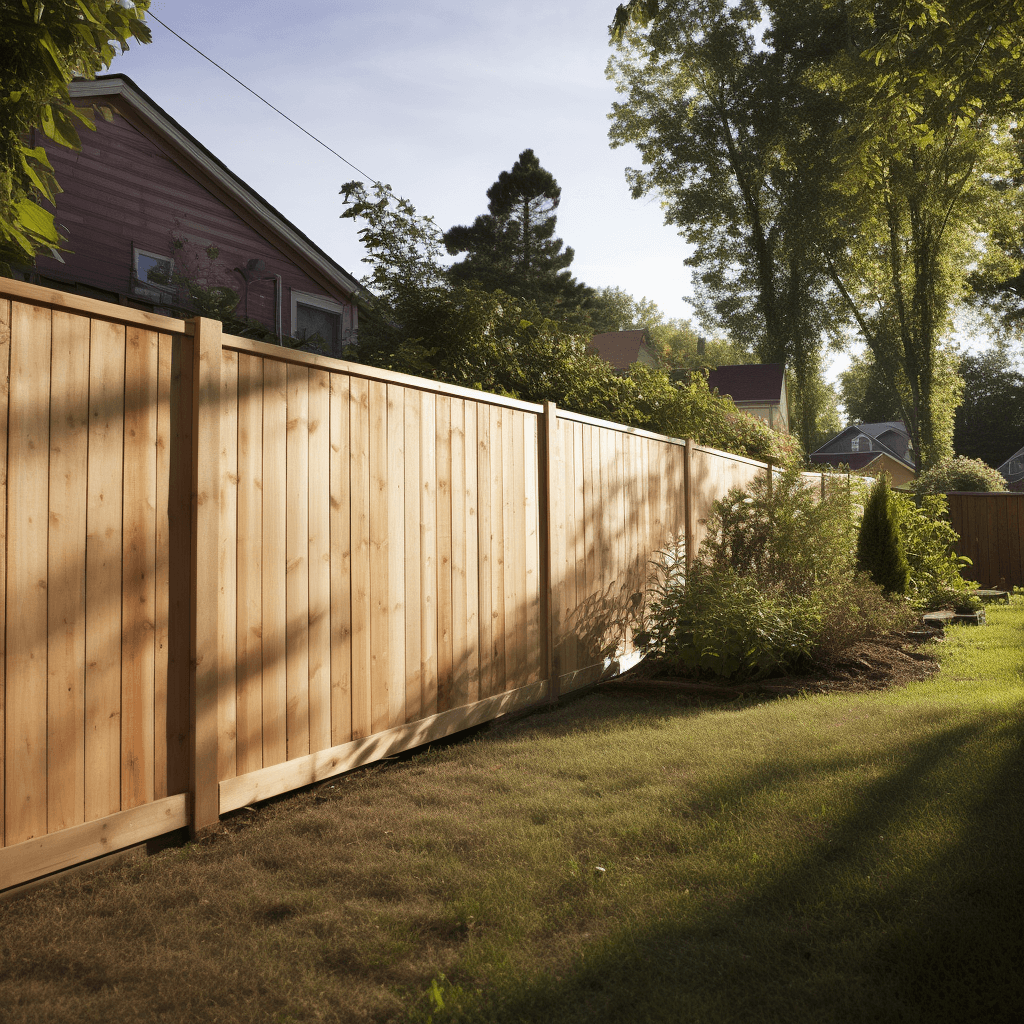How Much Does Fencing Cost? A Comprehensive Fencing Cost Summary
Posted by Rick R. on Oct 30, 2023
Fencing serves multiple essential functions, from providing privacy and security to enhancing the aesthetic appeal of your property. However, installing a fence is a significant investment that requires careful planning and accurate cost estimation. Various factors, including the choice of materials, labor costs, and additional features like gates or specialized hardware, can significantly impact what you’ll pay. This comprehensive guide aims to walk you through every aspect of fencing costs to help you plan your home improvement project.
Fencing Cost Factors Explained

Understanding the factors contributing to the overall cost of installing a fence is crucial for budgeting and planning your project effectively. Here's a detailed breakdown of the critical elements that can influence the cost of your fencing project.
Fencing Material Costs
The choice of material is one of the most significant factors affecting the cost of your fence. Here's a general breakdown of cost per linear foot for common materials:
- Wood: Costs can range from $12 to $30 per linear foot, depending on the type of wood. Cedar and redwood are more expensive but offer better durability.
- Vinyl: Expect to pay between $20 and $40 per linear foot. Vinyl is more expensive upfront but requires less maintenance.
- Aluminum: Costs vary from $20 to $35 per linear foot. Aluminum is durable and rust-resistant but may not offer as much privacy.
- Composite Materials: These can cost between $25 and $45 per linear foot. They offer the look of wood but are more durable.
Labor Costs
Labor typically accounts for 50% of the total cost. The average hourly rate for fence installation can range from $30 to $50, depending on the contractor's experience and regional labor costs. Factors like the complexity of the design, the condition of your land, and any obstacles like trees or rocks can also affect labor costs.
Fence Height
The height of the fence directly impacts the cost as taller fences require more material and labor. For instance, a 6-foot fence could cost significantly more than a 4-foot fence due to the additional material and the need for more robust, deeply set posts to support the extra height.
Fence Length
Accurate measurement of the fence length is crucial for cost estimation. The total linear feet will determine the material and labor required for installation. Always double-check measurements to avoid underestimating costs.
Slope and Site Preparation
If your property is sloped or has uneven terrain, additional work may be needed to level the ground or custom-fit the fence, increasing labor and material costs. Site preparation may also include clearing bushes, trees, or rocks, which can add to the overall cost.
Additional Hardware
Don't overlook the cost of additional hardware like post sleeves, gates, corner posts, post caps, and latches. Depending on the material and design, a single gate can cost anywhere from $100 to $750. Specialized hardware like decorative caps or electronic locks can add to the cost. Still, these extra touches can enhance the safety and visual appeal of your new fence.
Permits and Regulations
Before you start your fencing project, check local zoning laws and homeowners association (HOA) guidelines. You may need a permit, especially for fences over a certain height, and additional costs may be associated with obtaining these permits. Failure to comply with local regulations can result in fines or the need to modify or remove the fence, leading to additional expenses.
Additional Costs to Consider
When budgeting for your fencing project, it's crucial to account for some often-overlooked additional costs. If you have an existing fence that needs removal, this can add $3 to $5 per linear foot to your project. Landscaping modifications, such as removing or relocating trees and bushes, can also inflate costs. Finally, consider the expenses for painting and sealing, especially for wooden fences that require regular maintenance to prevent rot and decay. These additional costs can add up, so you must include them in your budget to avoid any financial surprises.
Tips to Save on Fencing Costs
Budget constraints are a reality for many homeowners, but there are ways to manage costs without compromising quality. Opting for more affordable materials like treated pine over premium choices like cedar can yield significant savings. Always get multiple quotes from contractors to ensure you're getting a competitive rate. Reconsider the height of your fence; sometimes, a 4-foot fence can serve your needs as effectively as a 6-foot one but at a lower cost. If you're handy with tools, consider a DIY installation to save on labor costs, but make sure you're well-prepared to avoid costly mistakes.
Getting Accurate Estimates
Accurate cost estimation is a cornerstone of any successful fencing project. Hiring a land surveyor can provide precise measurements of your property, ensuring you order the correct material. If you're confident in your DIY skills, use a measuring wheel or tape to calculate the total linear feet of the fence. Always double-check your measurements to avoid costly errors. Additionally, it's crucial to obtain multiple quotes from different contractors. This gives you a better understanding of market rates and allows you to compare services, helping you make a well-informed decision for your fencing needs.
Why Fencing Matters

Safety and Security
One of the primary reasons homeowners opt for fencing is to enhance the safety and security of their property. A well-constructed fence is a physical barrier that deters intruders and keeps children and pets safely within the yard. Some fencing options even include additional security features like locking mechanisms or spikes at the top to discourage trespassing further.
Property Delineation
Fences serve a practical function by clearly delineating your property lines. This is especially useful in suburban or rural settings where properties may be expansive, and boundaries are not immediately apparent. A fence helps avoid disputes with neighbors over property encroachments and can also be a legal requirement in some jurisdictions.
Aesthetic Appeal
Beyond its functional roles, a fence can significantly contribute to the aesthetic appeal of your home. The right fence design can complement your home's architecture and landscaping, adding value to your property. Whether you opt for a classic wooden fence or a modern metal design, the fence serves as a visual extension of your home, setting the tone for the rest of the property.
Privacy and Seclusion
The need for privacy and a personal sanctuary cannot be overstated in today's fast-paced world. A fence provides a much-needed barrier between you and the outside world, allowing you to enjoy your outdoor spaces without the prying eyes of neighbors or passersby. Whether hosting a backyard barbecue or enjoying a quiet evening on the patio, a fence ensures that your activities remain your own.
DIY vs. Professional Installation
The decision between DIY and professional installation hinges on various factors, including your skill level, the job’s complexity, and your budget. DIY can save you labor costs but requires a good understanding of carpentry and landscaping. Mistakes can be costly and time-consuming to fix. On the other hand, professional installation ensures the job is done right the first time but comes at a higher cost. If your project involves complex designs, slopes, or specialized materials, it's often best to go with a professional. Weigh the pros and cons carefully to choose the option that best suits your needs and capabilities.
Cost of Fencing: Final Thoughts
Installing a fence is a multifaceted project that involves various considerations, from the type of material and design to labor costs and additional features. By being aware of these elements, you can make informed decisions that align with your needs and budget. Whether you opt for a DIY approach or hire professionals, accurate planning and budgeting are critical to a successful and cost-effective fence installation. Always get multiple quotes and consider all potential additional costs to ensure your project runs smoothly and meets your expectations.

